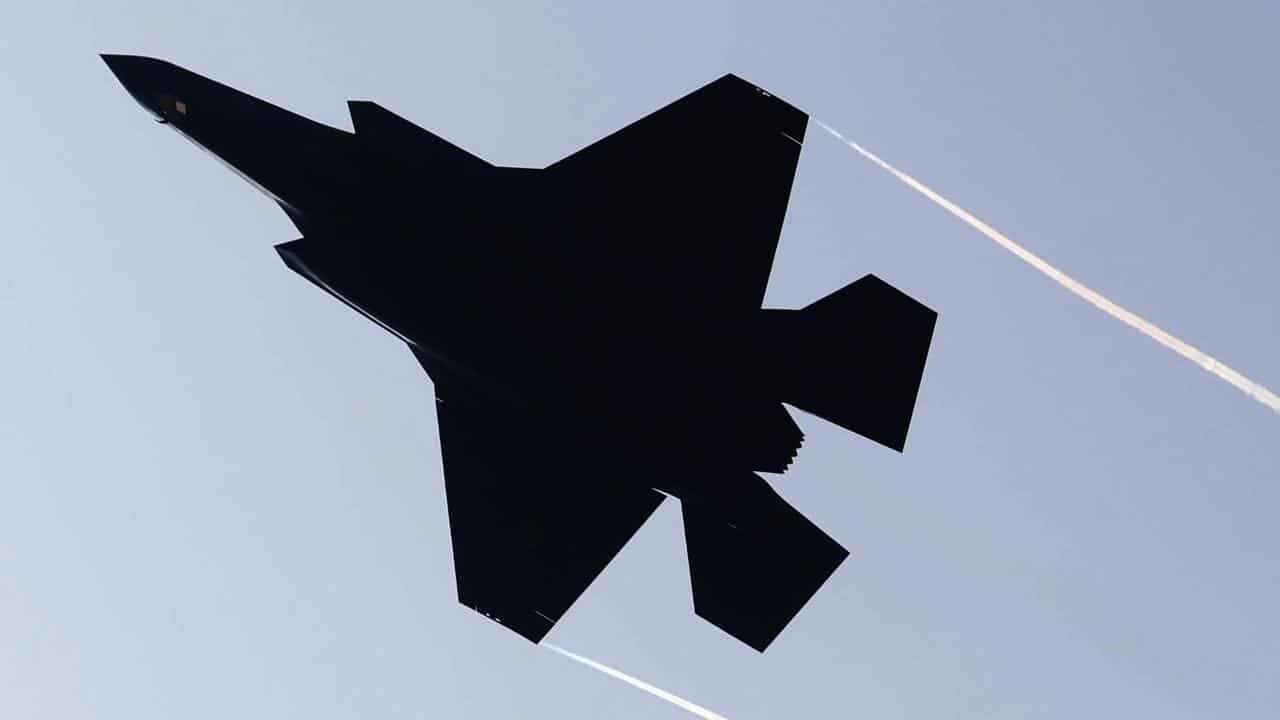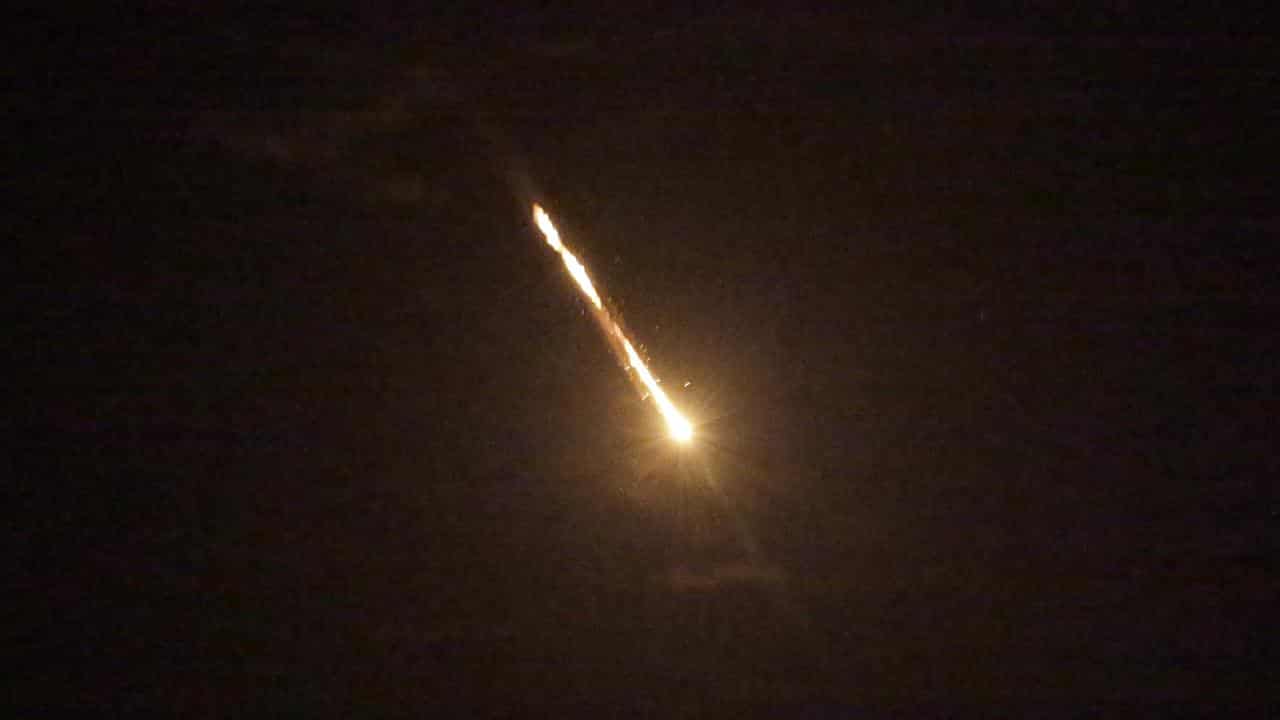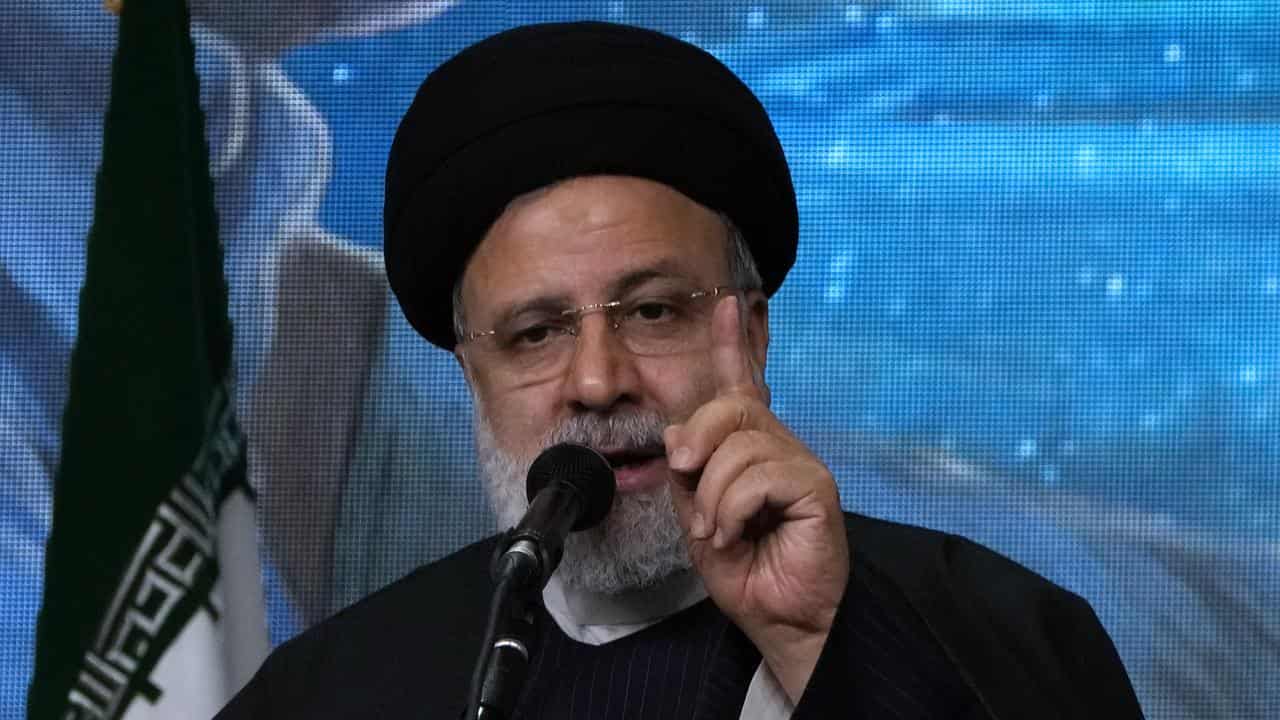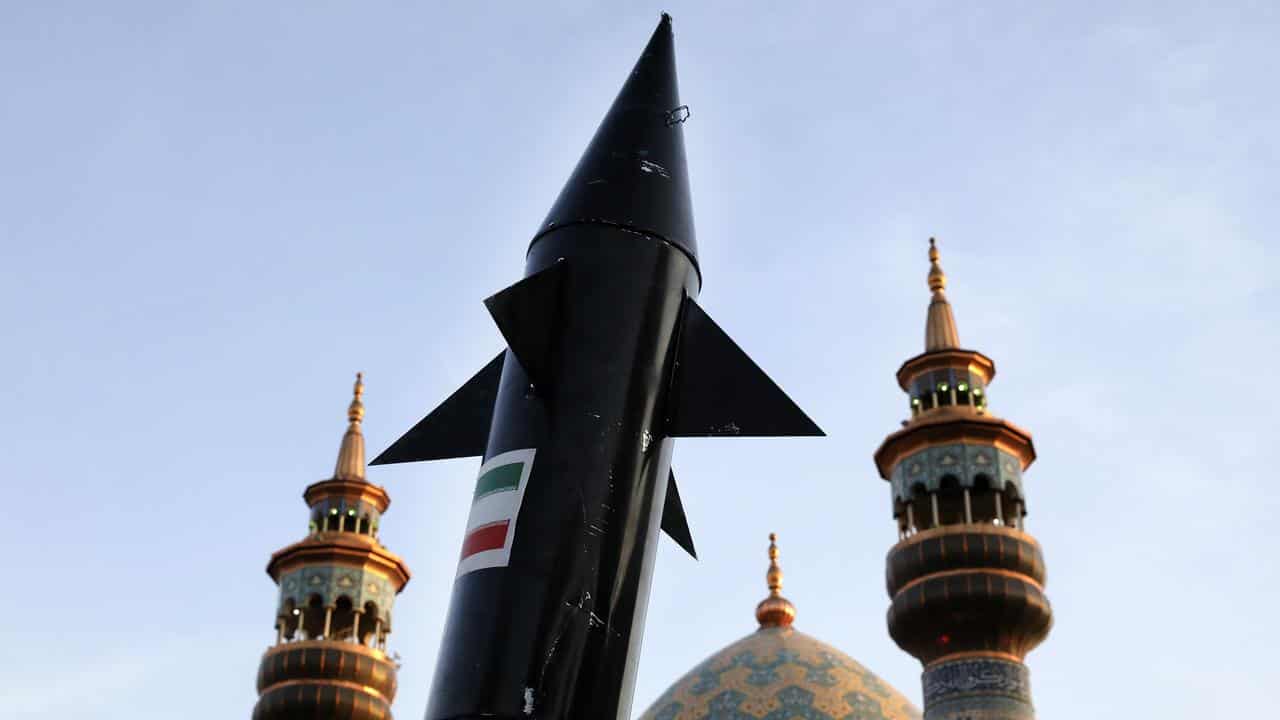
Israelis are awaiting word on how Prime Minister Benjamin Netanyahu will respond to Iran's first-ever direct attack as international pressure for restraint grows amid fears of an escalation of the conflict in the Middle East.
Netanyahu on Monday summoned his war cabinet for the second time in less than 24 hours to weigh a response to Iran's weekend missile and drone attack, a government source said.
Military Chief of Staff Herzi Halevi said Israel would respond. He provided no details.
"This launch of so many missiles, cruise missiles, and drones into Israeli territory will be met with a response," he said at the Nevatim air base in southern Israel, which sustained some damage in Saturday night's attack.
The prospect of Israeli retaliation has alarmed many Iranians already enduring economic pain and tighter social and political controls since protests in 2022-23.

Iran would respond to any action against its interests, President Ebrahim Raisi told Qatari Emir Sheikh Tamim bin Hamad al-Thani on Tuesday, according to the Iranian Student News Agency.
Iran launched the attack in retaliation for what it says was an April 1 Israeli air strike on its embassy compound in Damascus, and signalled that it did not seek further escalation.
While the attack caused no deaths and limited damage, it has increased fears of open warfare between the long-time foes and fuelled concerns that violence rooted in the Gaza war is spreading.
US President Joe Biden told Netanyahu at the weekend that the United States, which helped Israel blunt the Iranian attack, would not take aprt in an Israeli counter-strike.
Since the war in Gaza began in October, clashes have erupted between Israel and Iran-aligned groups in Lebanon, Syria, Yemen and Iraq.
Israel said four of its soldiers were wounded hundreds of meters inside Lebanese territory overnight.

It appeared to be the first such known incident since the Gaza war erupted, although there have been several exchanges of fire between Israel and Lebanon's armed group Hezbollah.
"We're on the edge of the cliff and we have to move away from it," Josep Borrell, the European Union's foreign affairs chief, told Spanish radio station Onda Cero.
"We have to step on the brakes and reverse gear."
French President Emmanuel Macron, German Chancellor Olaf Scholz and British Foreign Secretary David Cameron made similar appeals.
Washington and United Nations Secretary-General Antonio Guterres also have called for restraint.
White House national security spokesman John Kirby declined on Monday to say if Biden urged Netanyahu in talks on Saturday night to exercise restraint in responding to Iran.
"We don't want to see a war with Iran. We don't want to see a regional conflict," Kirby told a briefing, adding it was for Israel to decide "whether and how they'll respond."
In a call between the Chinese and Iranian foreign ministers, China said it believed Iran could "handle the situation well and spare the region further turmoil" while safeguarding its sovereignty and dignity, according to Chinese state media.
Russia has refrained from publicly criticising its ally Iran but has also urged restraint.
"Further escalation is in no one's interests," Kremlin spokesman Dmitry Peskov said.
Iran's retaliatory attack, involving more than 300 missiles and drones, caused modest damage in Israel and wounded a seven-year-old girl.
Most were shot down by Israel's Iron Dome defence system and with help from the US, Britain, France and Jordan.

In Gaza, where more than 33,000 Palestinians have been killed in the Israeli offensive according to Gaza health ministry figures, Iran's action drew applause.
Israel began its campaign against Hamas after the Palestinian militant group attacked Israel on October 7, killing 1200 people and taking 253 hostages by Israeli tallies.
British Prime Minister Rishi Sunak said the Group of Seven major democracies were working on a package of co-ordinated measures against Iran.
Italy, which holds the rotating G7 presidency, said it was open to new sanctions and suggested any new measures would target individuals.
Iran's attack has disrupted travel, with at least a dozen airlines cancelling or rerouting flights, and Europe's aviation regulator reaffirming advice that airlines use caution in Israeli and Iranian airspace.




